Beyond Academics
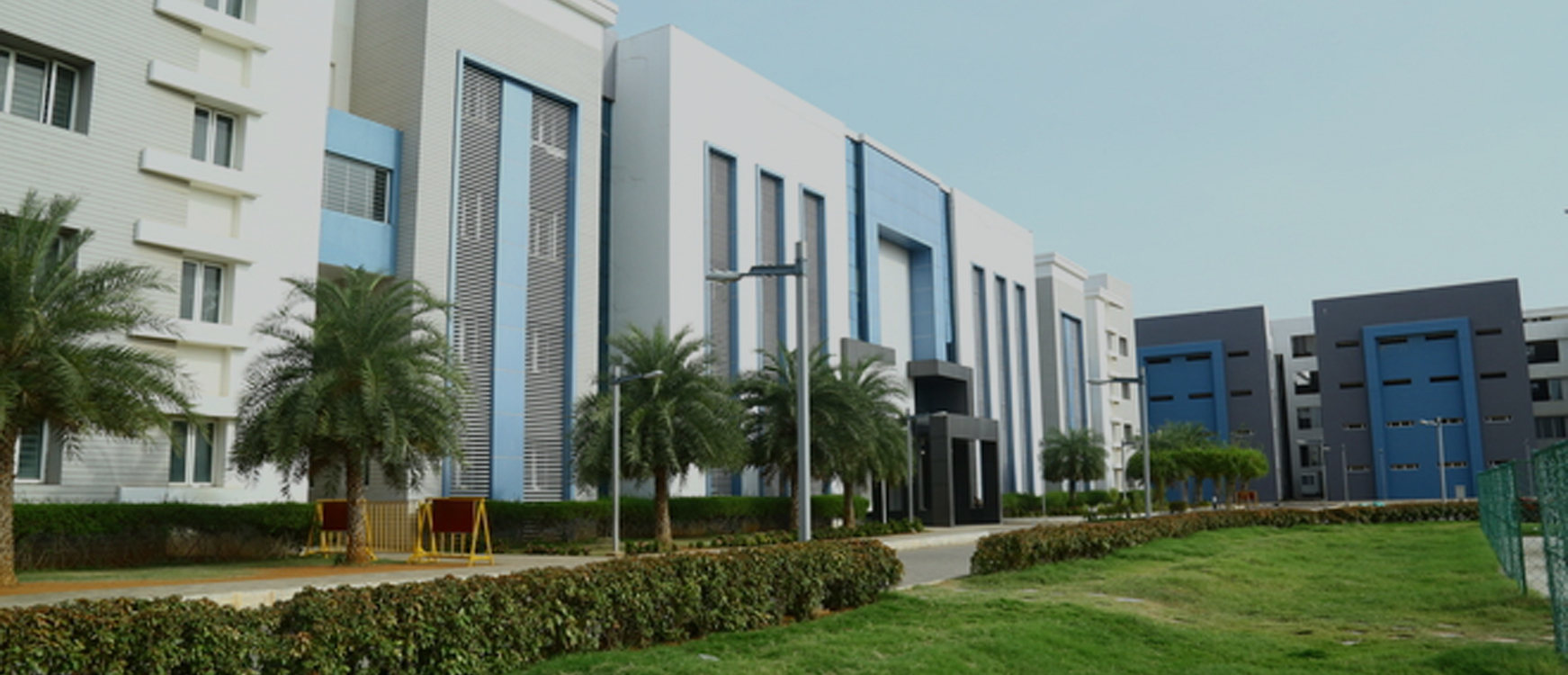

Beyond Learning
CPS Global School provides a wholesome learning environment for students to achieve their intellectual, physical and artistic potential. We truly believe that skill development is absolutely vital to prepare students for life. In order to build transferable skills among students, we identify their signature strengths, encourage them to take control of their learning and forge a path that suits their specific needs and skillset. The school offers a plethora of opportunities in both co-curricular and extra curricular activities while learning the fundamentals and mastering it as they progress in every stage.
The House system is an integral and vibrant part of our school’s culture where the entire student community belongs to one the houses namely Alphard, Canopus, Diadem and Plasma. The four houses literally pack the power of CPS constellation.
Alphard: The brightest Star in the constellation of Hydra and Blue colour represents Inspiration, Sincerity & Spirituality
Canopus: The second brightest star in the constellation of Carina and Yellow colour represents Self Respect, Well Being & Balance
Diadem: The main-sequence star in the constellation of Coma Berenices and Green colour represents Adventure, Risk Taking, Prosperity and Independence
Plasma: The essence of the stars and Red colour represents Passion, Joy & Courage
The House system aims to give students an identity and sense of pride in a supportive, secure environment.
It strengthens the feeling of belongingness, boosts competitive spirit, builds student-teacher rapport and encourages them to win for their houses by giving their best shot in both inter and intra school events.
- Leadership Training
- Sustainable Development Goals
- Sports & Wellness
- Community Service
- Outdoor Learning
- IAYP
- School Clubs
LEADERSHIP TRAINING
“A true leader is one whose actions create a legacy that inspires others to dream more, learn more, do more and become more” Our pupils grasp the concept of Leadership and a sense of responsibility while contributing to a sustainable society.
Student Council: We provide many opportunities for students to explore and develop their own leadership styles, learning the ability to lead in a way which inspires, builds trust and brings people together. Students of Upper Secondary are empowered to lead with formal positions of responsibility, with an emphasis on leading by example. We champion freedom of thought and encourage students to have the confidence to voice their views, and the wisdom to form them from a place of thoughtfulness and balance. We create all possible ways for the students to become leaders to adorn the positions of the Student Council. Our Head Boy and Head Girl lead their fellow students through various activities and become the torch bearers for the student community.
WIMUN
Young leaders of CPS Global are given the privilege to learn, promote citizenship by participating in US Govt./United Nation simulations, symposiums, pre conference workshops in and outside the country. WFUNA International Model UN (WIMUN) is one of the world’s choicest academic simulations of the United Nations, wherein students emulate the role of international diplomats, while aiming to develop mutually agreeable solutions to global challenges, through debate and deliberation, using the protocols of the UN itself. Every year our student delegates are provided with a golden opportunity to undergo global leadership training by WFUNA. The opening and plenary sessions of this conference are held in the UN, New York/Geneva where selected number of delegates were titled with the “Diplomacy Award” based on their leadership qualities, communication skill sets, body language, gestures, social activities and above all true confidence to pass resolutions and arrive at a consensus.
ILMUNC
Ivy League Model United Nations Conference is yet another expedition towards the goal of global leadership for our students of Upper Secondary. They are exposed to make significant contributions to the Model UN ecosystem in India through its emphasis on high-quality debate, holistic learning experiences and impact avenues that extend beyond committee sessions.
HMCA
Harvard Model Congress Asia, the U.S. government simulation conference is yet another event that spruces our students to know about government and international relations, navigate into the pressing global issues and offer a forum to discuss possible solutions. Students from around the world assume the roles of American and international leaders to address significant global issues while learning how the US government and various international organizations operate. Our students participate in debates, deliver speeches, and converge to write bills with the aim of passing resolutions and legislation to solve these issues.
WORLD SCHOLAR’S CUP
Each year, a large number of Seniors teams from CPS Global partake in World Scholar’s Cup to debate a current global theme, explore subjects that range from Science to Literature to Social Studies and be a part of the main four events – Team Debate, Collaborative Writing, Scholar’s Challenge, and Scholar’s Bowl. Many of our qualifying teams earn invitations at every Global Round to attend the Tournament of Champions finale at Yale University to face the best hundred teams around the world. They truly prove their mettle, amazing the medal tally to more than 200 accompanied by an array of trophies.
FUTURESAKE
FutureSake, an youth-centred program around Sustainable Habitats envisions to co-create knowledge societies to construct, share and use knowledge for the prosperity and well-being of the people and the environment. As an associate partner with worldview, we do this by engaging students through research and audits, discussion & deliberation, travel, case studies and hands-on projects that equip them with the mindset required for a smarter future. The CPS Changemakers visit Singapore and study this exceptional city that uses the best of the available resources for a clean and healthy environment. Thereby, the baton is carried forward to spread the awareness for a sustainable future for the coming generation; implement the best practices in their own school campus and at home.
ERUDITE AND GLEANINGS: Students of Grade 9 and upwards are a part of Leadership Talk Series. They are curated to motivate our students to uncover their true potential and face challenges with indomitable spirit. Each session of the Erudite Talk is carefully designed to integrally align various aspects of learning with the curriculum context. Eminent speakers inspire and influence students to ask questions, investigate, apply new found knowledge and follow a path of lifelong learning.
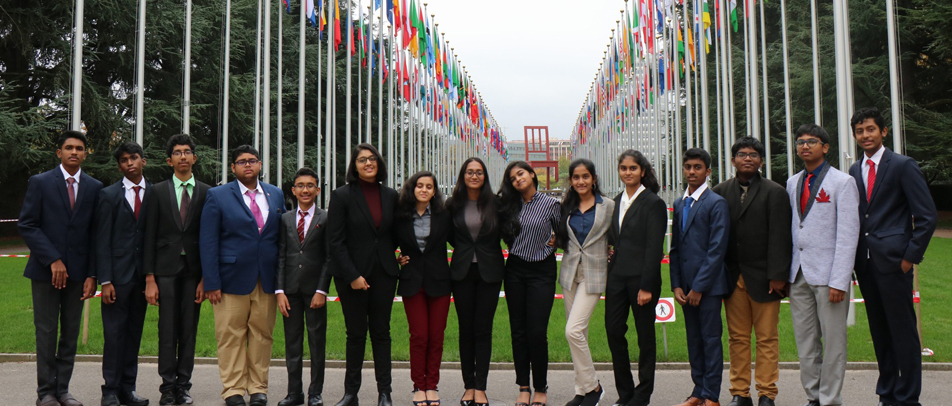
Page GALLERY
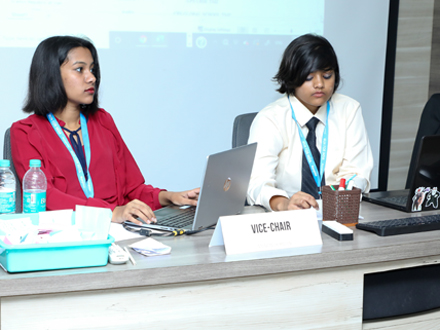
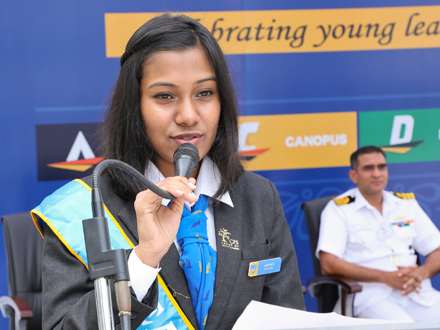
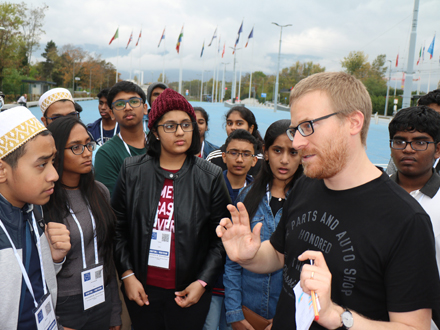
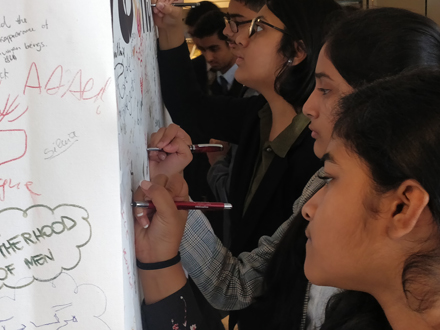
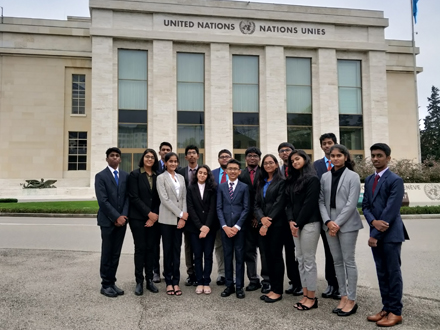
SUSTAINABLE DEVELOPMENT GOALS

Source: Hilton foundation
| SDG PROJECTS & OUTCOMES AT CPS GLOBAL SCHOOL | ||
| PROJECT/INITIATIVE | OUTCOME | SDG |
| Set up of Community Fridge | Eradicate hunger and serve healthy food | SDG # 1 & 2 |
| Support underprivileged, mentally challenged children, elderly through Joy of Giving celebrations | Care for the people living in our community | SDG # 1, 2 & 3 |
| Raise funds for Kerala Flood Relief | Supply of food, essentials in relief camps to fight hunger & rebuild houses displaced in floods | SDG # 1, 2 & 9 |
| Teach mentally challenged children, First Aid Training by St. John’s Ambulance | Working for a better society | SDG # 3 |
| Workshops on Mental and Physical Well Being, International Yoga Day Observance | Make students realise the importance of disease free life and sound health | SDG # 3 |
| Service at Banyan – A home for Mental unstable women | Accept all people of community | SDG # 3 & 10 |
| Raise funds in collaboration with Fuel a Dream / Freedom Trust / Sankara Hospital/ Rotary Club of Madras East / Apollo Hospitals | Support people with Artificial Limbs/ Regain Eyesight – Cataract Surgery / Heart Surgery for the children to enhance their lives | SDG # 3 & 15 |
| Cancer awareness / organ donation / stem cell / medical camps organised by students in both urban and rural areas | Create awareness among the public through volunteered campaigns to regain life, educate the community on advancement in treatment of diseases | SDG # 3 & 17 |
| Career Connect Sessions – Collaboration with Universities, both Indian and International | Guidance on choice to pursue Higher Education | SDG # 4 |
| Waterford/ IGCSE/ IB curriculum followed at School | Empower future generation as global citizens | SDG # 4 & 5 |
| Employ female bus drivers; organise workshops for our school attendants & drivers | Emphasise on gender equality and improve their lifestyle | SDG # 5 & 10 |
| Submit solutions @ UNSLCD ’19 – Water for Sustainable Development | Research to find sustainable solution | SDG # 6 |
| Water Treatment Plant Initiated at School Campus | Find sustainable solution for water recycling | SDG # 6 & 12 |
| Solar Power Grid Installed in School Campus | An initiative, equivalent to planning 33,000 trees | SDG # 7 |
| SEEDS Club initiated to entrust students with professional skills as a part of extended learning | Guest lectures, debates and discussions on current affairs to empower student on global economy | SDG # 8 |
| Service at Siragu Montessori school – A school for street kids | Motivate the future generation to treat all children equally | SDG # 10 |
| Self Defense Training for Girls | Practice Gender Equality on campus | SDG # 10 |
| Celebrating festival with our Drivers/ Housekeeping staff | Care for the people working for us | SDG # 10 |
| Wealth Out Waste (wow) Projects – Collaboration with ITC, Beach Clean-Up, Using newspaper to make bin liners | Reduce, Reuse & Recycle for a green future | SDG # 11 |
| Regular Debates / Poster Making / Blog Writing on World Peace/ Literary day | Being more aware to create a happy community for all | SDG # 11, 16 |
| Undertake Saplings/ Tree Plantation on campus, carpooling campaign, Futuresake projects | Awareness on Global warming among youth | SDG # 13 & 15 |
| Submit solutions @SLCD@UN 2018 Climate Change, Power Talks with Co-founders & CEOs of Green Initiatives | Research to find sustainable solution | SDG # 13 |
| Turtle Release with Olive Ridley Group | Care for endangered species under water | SDG # 14 |
| Service @ Blue Cross | Care for animal life on land | SDG # 15 |
| Signed MoU with Young Indians | Nation Building / Thought Leadership / Youth Leadership | SDG # 17 |
Page GALLERY
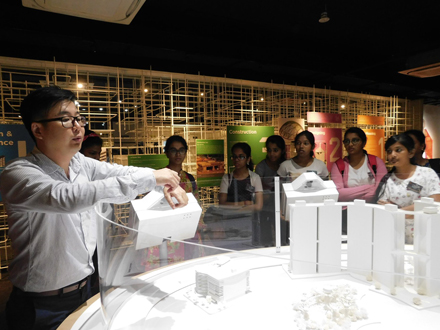
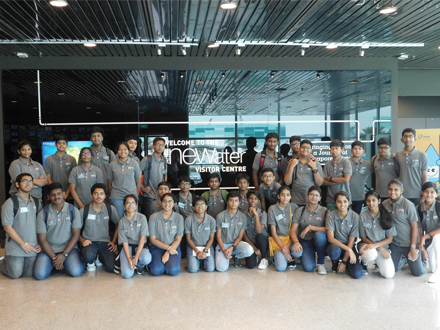
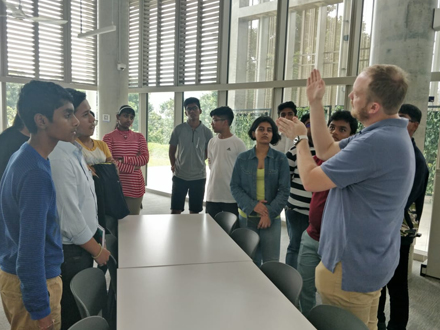
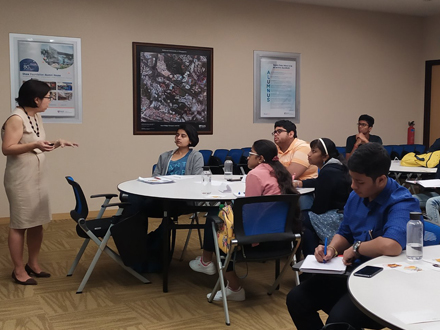
SPORTS & WELLNESS
Sport for all and physical fitness are seen as preparation for a healthy and active life. The school has a strong record in many sports and provides high quality infrastructure for students to enjoy and enhance their sports skills. The Physical Literacy Program at school is led by well-qualified facilitators with more than five decades of collective experience. They identify and prepare Junior and Senior Teams for various sports to represent school, region, state, national and international events.
The prime objectives to promote sports actively in the secondary school segment are
- Encourage children to participate in age appropriate activities and sports of their choice
- Establish life-long fitness goals among students
- Scout and train the sporting talent
- Develop and reinforce cooperative behaviour among students
The school offers wide choices of sports and games for every student to opt any two from the following:
| Field Events | Track Events | Indoor Games | Outdoor Games | Others |
|---|---|---|---|---|
| Shot Put Discuss Throw Long Jump High Jump |
Short & Long Distance Relay Medley Hurdles |
Badminton Table Tennis Carrom Chess |
Volleyball Football Throwball Basketball Handball Hockey Kho Kho Cricket |
Karate Taekwondo Yoga Aerobics |
ANNUAL SPORTS DAY
The Sports Day is a glorious annual event in the annals of CPS Global School. We proudly celebrate the achievement of each and every student and their sportsmanship. The school recognises the highest level achievers of the year with Abhinav Bindra and Dhyan Chand Awards. It’s one big happy event where the whole school including the parent community comes together to encourage and support the blossoming talent of our young achievers. This day also witnesses parents participating in exciting events specially knitted for them. The day ends with the proud house champions of the year walking away with their Rolling Trophies amidst loud cheer and appreciation from their house members.

Page GALLERY
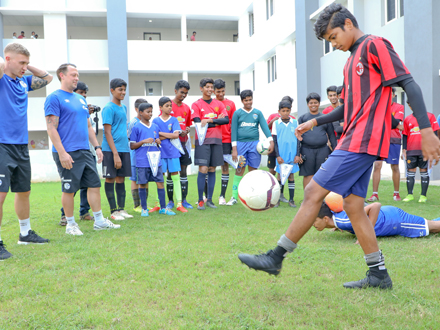
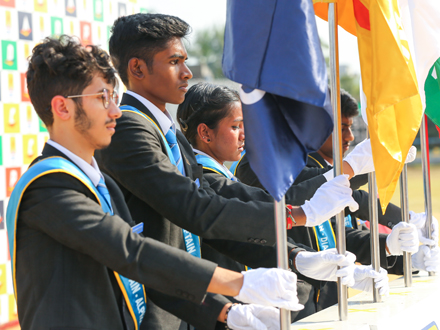

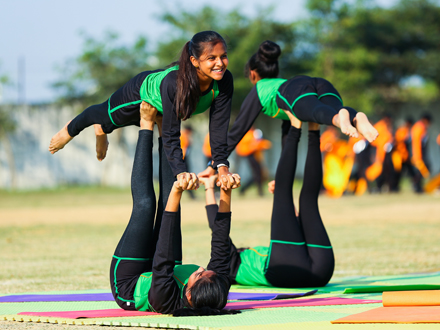
COMMUNITY SERVICE
As the saying goes “every charitable act is a stepping stone towards heaven,” the students of CPS Global embark on a gargantuan effort through crowdfunding/fundraising activities to aid differently abled people to live their dream.
Learning through experience and serving the community enhances their personal and interpersonal development. Our students engage in multifarious social impact initiatives and rallies to symbolise the element that they are a part of the society, taking care of the needy, preserving and protecting the natural resources. It includes cancer awareness campaign in collaboration with Adyar Cancer Institute, organ donation awareness rally in collaboration with Frontier Lifeline Hospital, stem cell donation awareness campaign in association with DATRI; nationwide ‘Rally for Rivers’ along with certain specific agenda like remodelling the abandoned suburban railway station in Chennai, coastal clean up projects and so on.
They also extend their learning beyond – by sharing their knowledge to teach the rural students, by improving the ambience of the surrounding, to empower themselves and earn the truest experiences that their efforts have netted them.
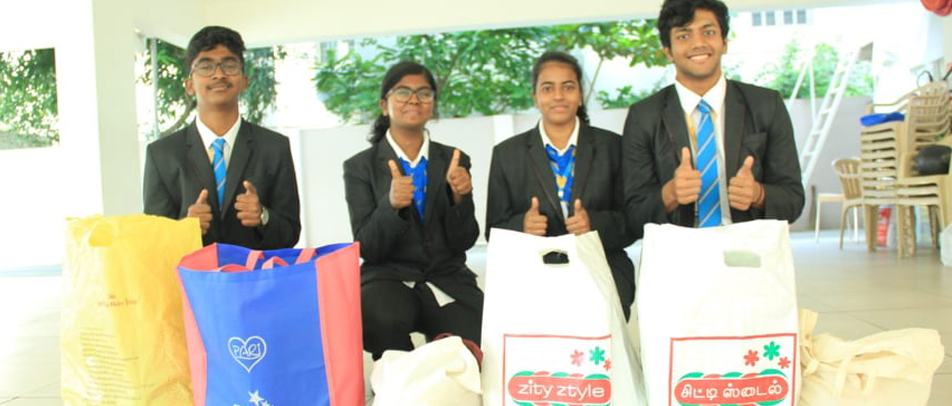
Page GALLERY
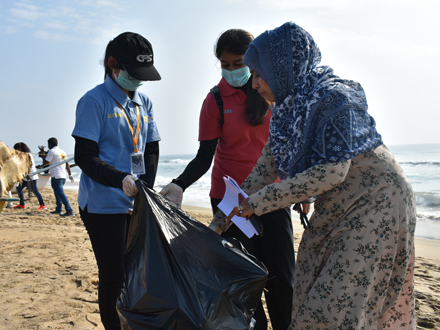
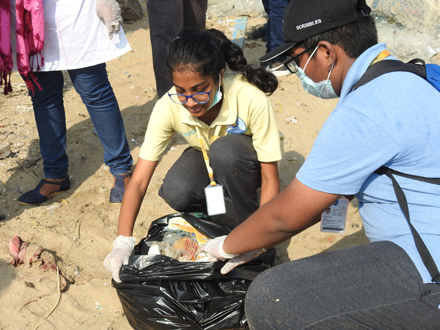
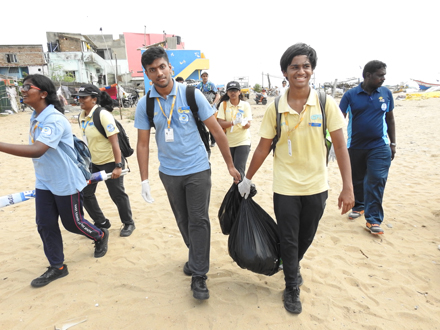
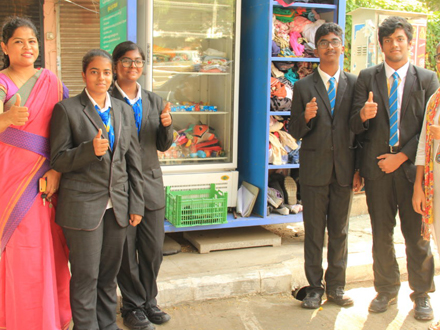
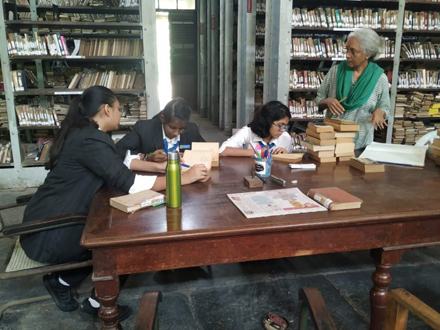
OUTDOOR LEARNING
By the time students move into upper secondary school the outdoor learning has a specific objective. They visit the places as per the subject interest also along with trips aimed for the whole segment. It is time for the students to know how gas chromatography works or how language is used in the media. They observe, discern patterns and relationships, determine correlations and make evaluations, the students in effect are practicing the process of scientific inquiry first-hand.
Industrial visits are organised to understand the raw material procurement, factors affecting production, work assembly process, logistics and other aspects in order to aid them to experience it’s real-world application. Some of the outdoor trips our students enjoy visiting are the world’s largest Cardiac pathology Museum, Centenary Library, and the Newspaper Printing Unit.
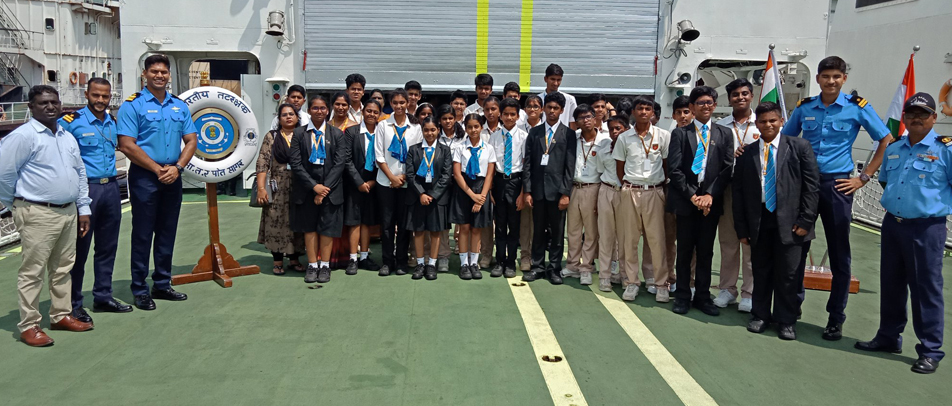
Page GALLERY
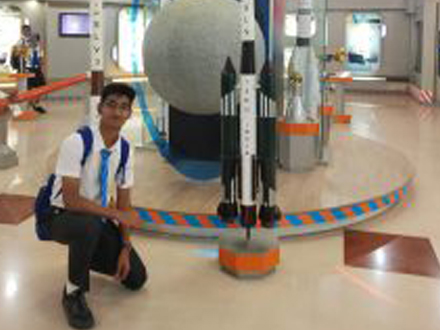
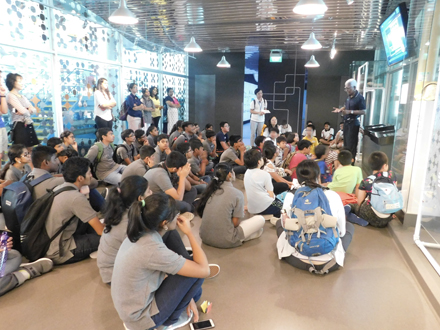
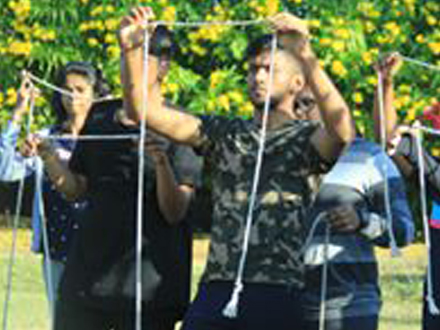
The IAYP
The Award Programme originated in the United Kingdom in 1956 as the Duke of Edinburgh Award Scheme (DEAS). The aim was to help young people bridge the gap between adolescence and adulthood, smoothly. It was introduced in India in 1962 and today it is called the International Award for Young People (IAYP).
This programme inspires youngsters to
- engage in a balanced agenda of voluntary, non-competitive and self-development activities
- encourage self-exploration, autonomy, determination and service to their community
- emphasise the efforts being made to work with ‘at Risk’ youth and those with social, physical, economic challenges
YES Centre
CPS Global School acquired the Youth Engaging Society (YES) Centre Status in 2017 to offer the Duke of Edinburgh’s International Award for students of age group 14 to 25 years who wish to take up challenges.
Beyond the Domains of Education
At CPS Global School, this non-formal education is imparted through the International Award for Young People (IAYP) programme that makes learning experiential. The school offers all three levels: Bronze, Silver & Gold, and four sections; Skills, Service, Physical Recreation and Adventurous Journey which encourage personal discovery and growth, independence, tenacity and a responsibility to each student as well as their neighbourhood. The trade-off has been very rewarding; students have rediscovered themselves in terms of behaviour, attitude essential for an exemplary citizen
| Level of Award | Minimum Age of Entry | Minimum Duration |
|---|---|---|
| Bronze Silver Gold |
14 years 15 years 16 years |
6 months 18 months |
The Award as a Driving force
The fruits of this endeavour are sweeter than our expectations. CPS Global always worked upon the thought of nurturing global citizens. The approach that we sought, which proudly involves IAYP, has facilitated us on this path through easy learning. More than 100 students from our school registered for the Bronze and Silver awards in a span of three years and emerged successful by meeting all the requirements. When they earn their award, they receive internationally acclaimed recognition of their achievements, gain new skills and experiences; make new friends, and build their all-round character, the traits that are sought after by both universities and employers alike.
“IAYP has helped me better understand myself as well as the people around me. It made me channelise my energy and thoughts, sharpen my personality and skills way beyond my imagination while collaborating with people in rural areas”. – Sneha Arun
“After the adventure journey, I have become mentally stronger. The Journey helped me overcome my fears and has increased my tolerance level. It introduced an extra dimension in my life and has helped me discover a different side of myself. The journey was one of self-discovery.” – Sukriit Verma
SCHOOL CLUBS
School clubs are an exciting extension of learning that happens beyond the classroom walls. It allows students to embrace the activities they enjoy the most and sharpen their interests. CPS Global student-led clubs are for the students, by the students and of the students. This is where they get to plan the events on their own with the minimal guidance of the facilitators. Student Club Secretaries are democratically elected and have a tenure of one year normally.
Club activities conducted through the year also help students to groom their leadership and social skills. Students of Grade 6 upwards get an opportunity to participate in the club activities and it is voluntary. They can take part at the most in two school clubs.
Plentitude of Clubs like Literary Club, Enviro Club, Math Club, Language Club, Art Club, Theatre Club, Photography Club, Debate Club, Coding Club, Robotics Club, Animation Club, MUN Club, Law Club, SEEDS Club, Financial Literacy Club, SDG Club, Interact Club have an unique flavour and cater to the varied interests of the students.
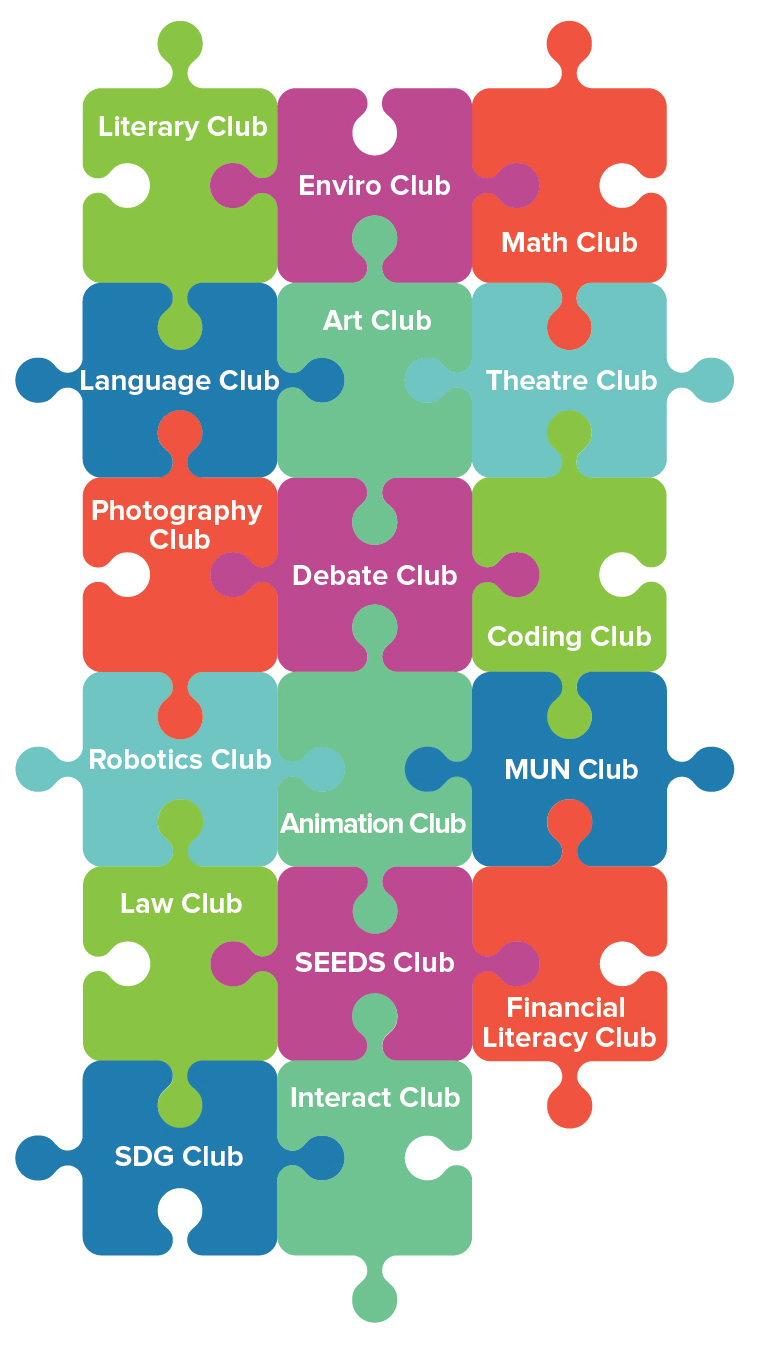
The year-long activities come to an end with a spectacular show of learning on La fenetre, a day of a grand culmination.
While the club activities improve the portfolios of the students, many a time they complement the courses they pursue at the next phase of their learning.
Page GALLERY
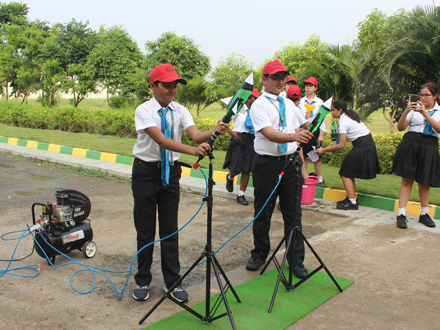
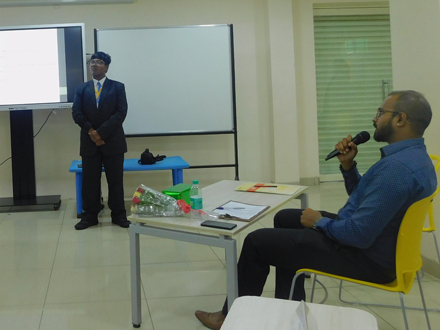
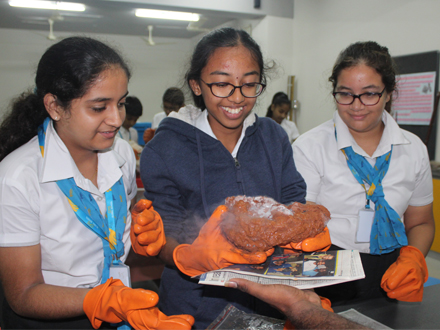
Affiliations




Accolades



Associations











Affiliations




Accolades



Associations








Date
Color
april, 2024

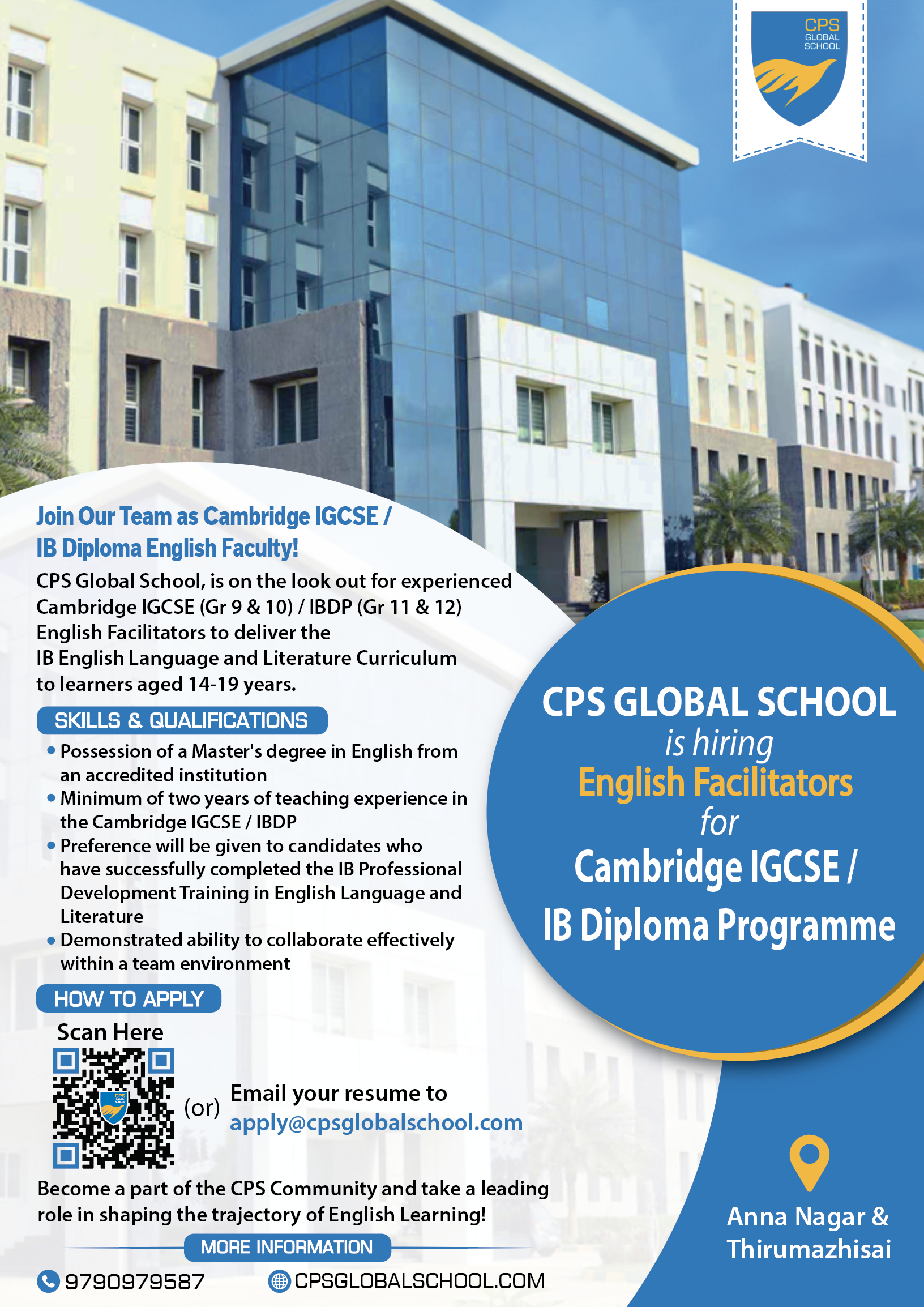
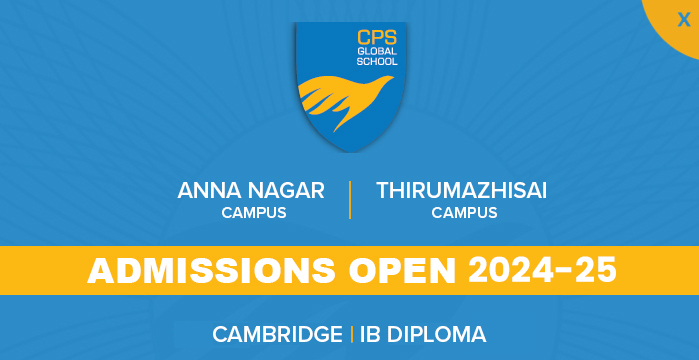

 Watch Video
Watch Video